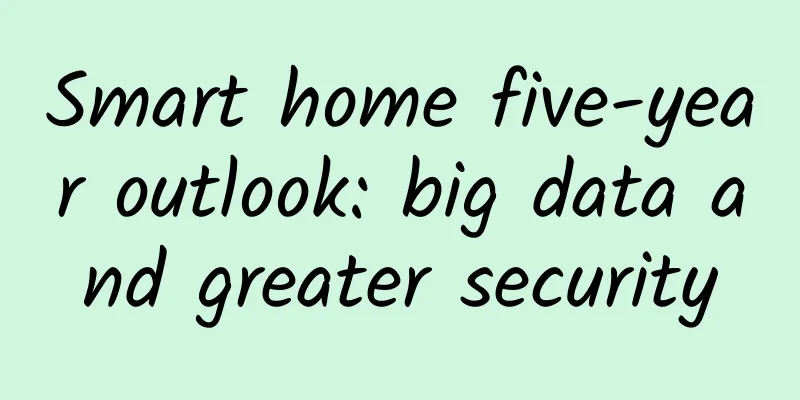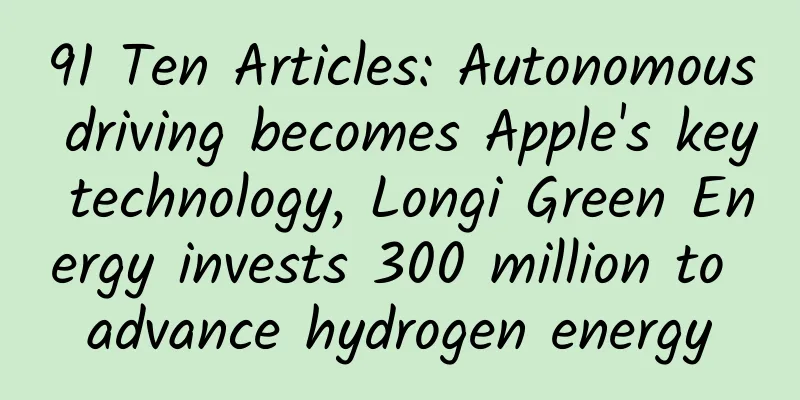Smart home five-year outlook: big data and greater security

|
Smart home is the next stop for smart technology, but judging from the current situation, smart home seems to be still some distance away from our real life, and most smart home products only look beautiful. On December 3rd, US time, several "Googles and Apples" in the smart home industry, including smart lock company August and smart home company SmartThings, gathered at the Silicon Valley Station of the Global Mobile Internet Conference (GMIC) in San Francisco to discuss the direction and challenges of smart homes in the next three to five years. Cloud big data will be able to do more Jeff Hagins, co-founder of SmartThings, said that connected hardware can make people feel more at ease, and they can use their mobile phones to know whether the front door of their home is locked. Smart platforms cannot be limited to connecting devices and automation, but must expand the value chain and services. The derived data can do a lot of things and quantify a lot of things. When it comes to data, the cloud is undoubtedly the best medium. The cloud can accommodate a large amount of data, which is unmatched by the storage capacity of a single device. The data organization and planning performed in the cloud can also make users feel its existence and directly enjoy the results it brings. In the smart home industry, big data can help you make better products. Itamar Novick, chief business officer of Life 360, a family member tracking and location application, specifically mentioned the application of smart homes in elderly care. By integrating body data and putting the data into the cloud for analysis, many preventive measures can be taken, such as preventing the elderly from falling. On the other hand, the combination of smart home products and the cloud is more meaningful than the familiar relationship between Apple devices and iCloud. It can connect different devices to share data and even connect to some public facilities. For example, when you are on your way home, smart home products can determine when to turn on home appliances based on traffic conditions. When you get home, the air conditioner and water heater are ready to serve you. This is obviously much smarter than simply controlling home products with a smartphone. Security becomes a thorny issue again As a new direction of technology, smart home is bound to have some potential problems in development. August COO Bharat Vasan believes that the key to smart home is to make daily life easier, which has led to Apple and Google launching their own smart home platforms to try to integrate different devices. However, in this process, network firewall issues need to be considered in particular. User data cannot be simply transmitted without any concern. Security will be a key to product development. In fact, compared with mobile terminals such as smartphones, the security protection of smart homes is more important. Just like the use of smart devices to control the doors and windows of the home as we mentioned earlier, if there are loopholes in data security, then with the help of smart home products, hackers are not just thieves on the Internet but may really become thieves in reality. Security issues have always plagued the Internet industry, and it is not easy to implement them in products. For example, Apple's fingerprint recognition Touch ID is a unique technology developed after the acquisition of Authen Tec. It is quite secure, but the high degree of correspondence with internal hardware such as processor chips makes it difficult to use this technology in other fields. Google's Android platform also took security encryption seriously at the bottom of the software only after version 5.0, but the ensuing "aftereffect" made the device's performance worse than before. On the other hand, we cannot treat smart home products like we do mobile phones and computers. Taking into account the extremely limited software and hardware space, long-term maintenance costs and special usage scenarios of home products, smart home manufacturers need to find a new security solution for their products. Perhaps the most direct way is to solve all these problems in the cloud, but which cloud platform dares to say that it is absolutely safe? The entire smart home industry still has a lot of room for improvement, and we may need to wait another three to five years before we can enjoy the convenience of smart life with peace of mind. As a winner of Toutiao's Qingyun Plan and Baijiahao's Bai+ Plan, the 2019 Baidu Digital Author of the Year, the Baijiahao's Most Popular Author in the Technology Field, the 2019 Sogou Technology and Culture Author, and the 2021 Baijiahao Quarterly Influential Creator, he has won many awards, including the 2013 Sohu Best Industry Media Person, the 2015 China New Media Entrepreneurship Competition Beijing Third Place, the 2015 Guangmang Experience Award, the 2015 China New Media Entrepreneurship Competition Finals Third Place, and the 2018 Baidu Dynamic Annual Powerful Celebrity. |
<<: Hackers, opponents or users, where does Apple’s interest come from?
>>: Smart hardware is developing too fast, please wait for consumers!
Recommend
Pre-prepared meals are becoming more and more popular. Is it unhealthy to eat them frequently?
Have you heard of pre-prepared meals? There is a ...
Targeting 48% of quality youth, VIDAA has a different view on the Internet TV landscape
LeTV, Xiaomi, WeTV, PPTV, Kanshang, Fengxing TV, ...
How will smart TVs change the future of home entertainment?
What is home entertainment? The elderly people bo...
If air enters the blood vessels during infusion, is there any hope?
Image source: Qiantu.com If air enters the blood ...
Sniping Samsung, why does Skyworth dare to say that curved LED TVs are a technological regression?
How thin can a TV be? With the launch of Skyworth...
They killed 140,000 goats, and they said it was for ecological protection?
The gunmen on the two helicopters, armed with sho...
Case analysis: Artbao’s event promotion process
In the past two years, if we were to ask which tr...
2020-2021, why do you think marketing is so difficult?
According to our observation, brands mostly face ...
Xiaomi's first pure electric sedan may be unveiled at the end of October and has now entered the trial production stage
Xiaomi Group (01810.HK)'s road to car manufac...
Chen Kai's "Basic Knowledge of Stock Market" K-line diagram, technical indicators explanation video tutorial
Course Contents: 1.0 Preface.mp4 1.1 Basic knowle...
Apple, Google and other technology stocks plummeted: cooling down the trillion-dollar market value may not be a bad thing
Recently, high-tech stocks represented by Apple, F...
New Channel for App Store Promotion: Mobile Video Advertising
As App promotion channels mature, CPs and publish...
Doctor Who (All 12 Seasons + Specials + Specials) HD English Subtitles
Chinese name: Doctor Who Foreign name: Doctor Who...
Electric rays: the "Pikachu" and "generator" of the ocean
Electric rays are cartilaginous fish belonging to...
How do these nearsighted shooting champions hit the bull's eye?
Column design: 91 Author of this issue: Guo Yiche...









![[A magic tool for watching movies anytime, anywhere] PaPa Pocket Cinema Review](/upload/images/67f0a2d8d7599.webp)